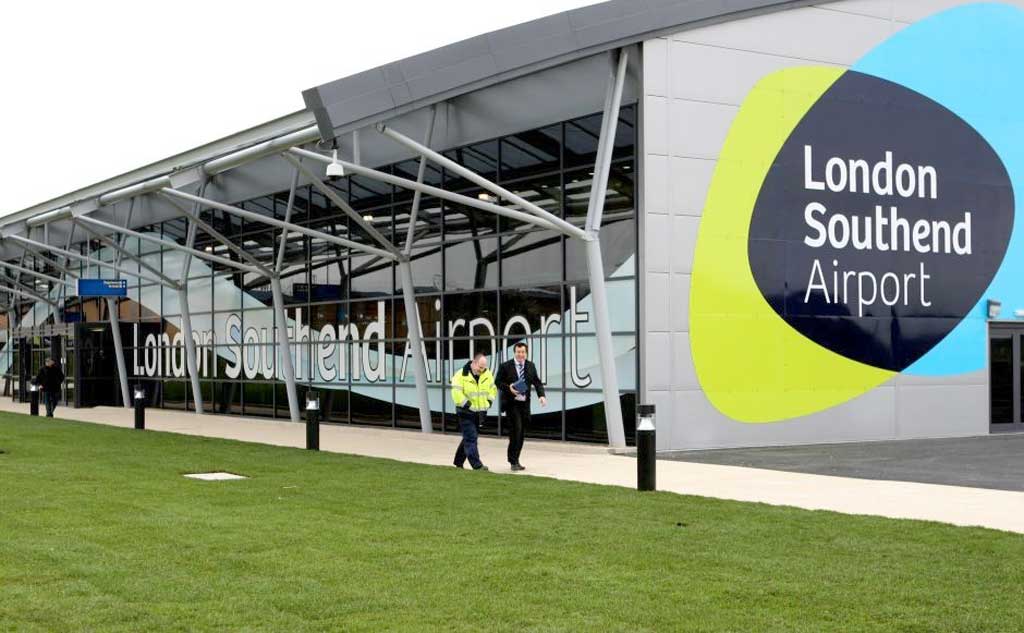Airport boss demands end to ‘constant changing’ of travel rules
Exclusive: ‘The most valuable thing the government can do is to create confidence in the market,’ said Glyn Jones of London Southend airport

Your support helps us to tell the story
From reproductive rights to climate change to Big Tech, The Independent is on the ground when the story is developing. Whether it's investigating the financials of Elon Musk's pro-Trump PAC or producing our latest documentary, 'The A Word', which shines a light on the American women fighting for reproductive rights, we know how important it is to parse out the facts from the messaging.
At such a critical moment in US history, we need reporters on the ground. Your donation allows us to keep sending journalists to speak to both sides of the story.
The Independent is trusted by Americans across the entire political spectrum. And unlike many other quality news outlets, we choose not to lock Americans out of our reporting and analysis with paywalls. We believe quality journalism should be available to everyone, paid for by those who can afford it.
Your support makes all the difference.A leading airport boss has demanded an end to the “constant changing of position” by the UK government on international travel.
Glyn Jones, chief executive of London Southend airport, told The Independent: “The constant lack of certainty about when this situation will be resolved is a major problem.”
On Monday this week, the government imposed the most onerous travel restrictions ever in peacetime on arrivals to the UK: mandatory testing before travel, followed by up to 10 days of quarantine for arriving passengers.
Ministers have also indicated they may bring in mandatory airport hotel quarantine for arrivals, a model used in other countries since March 2020.
Mr Jones said: “Once you start to add condition on condition on condition in any circumstance, the probability of the outcome goes down.
"Uncertainty is an absolute problem. The most valuable thing the government can do is to create confidence in the market.
“Only when passengers are confident enough to book future trips will UK aviation begin to recover.”
London was previously the world capital of aviation, with more passengers each day than any other city in the world. But since the coronavirus pandemic took hold, along with multiple travel restrictions, activity has slumped to a small fraction of normal levels.
Mr Jones said the collapse in traffic began in early March 2020.
“Within a month we had gone from a reasonably full airport to nothing,” he said.
He described the financial support that the aviation minister, Robert Courts, has announced as “far too little and far too late,” and said it was “the same announcement that was made in November, with the promise of a bit more detail around it”.
But the Southend boss was optimistic about aviation bouncing back to pre-coronavirus crisis levels.
“London is the biggest aviation market in the world and historically the most resilient. There will be, without any doubt, a bounce back into London,” he said.
“The real question is: when does demand return to 2019 levels? It looks as though it’s two or three years, maybe four years.
“Aviation is a long play. I don't have any doubt whatsoever that Southend will still play a substantial role in London and the south-east aviation market.
"In 2019, London was – with the exception of London Southend – full, with all of the attendant service problems that go with it, and experience problems for passengers.”
In a gibe against Heathrow, he called the £100m investment sunk into London Southend as “a consultancy bill at some other airports”.
“You cannot manage your way out of this crisis through cost. You have stimulate demand. How do you stimulate demand – what’s the most powerful lever in the consumer world? Price. How do you deliver a price lever? Cost.
“We’ve got a hyper-efficient airport with an ultra-low cost base. We’re under London airspace so we don’t suffer delays with all the costs that go with that.”
On Monday Karen Dee, chief executive of the Airport Operators’ Association, told the BBC Today programme: “We believe that vaccinations and a testing framework of some kind is going to be key to giving people the confidence that they need to travel again.”
Announcing the government’s test-before-travel scheme, the transport secretary, Grant Shapps, said: "We already have significant measures in place to prevent imported cases of Covid-19, but with new strains of the virus developing internationally we must take further precautions.
“Taken together with the existing mandatory self-isolation period for passengers returning from high-risk countries, pre-departure tests will provide a further line of defence – helping us control the virus as we roll out the vaccine at pace over the coming weeks.”




Join our commenting forum
Join thought-provoking conversations, follow other Independent readers and see their replies
0Comments